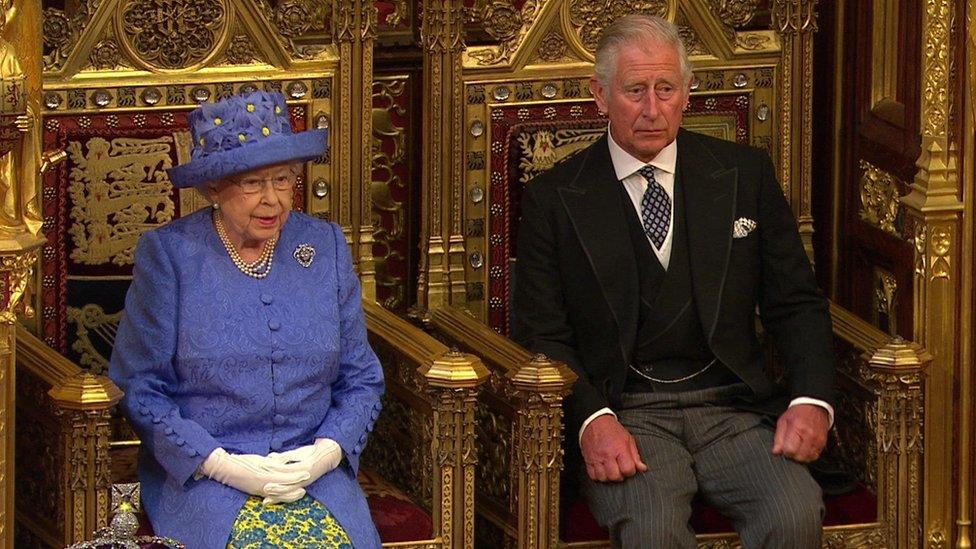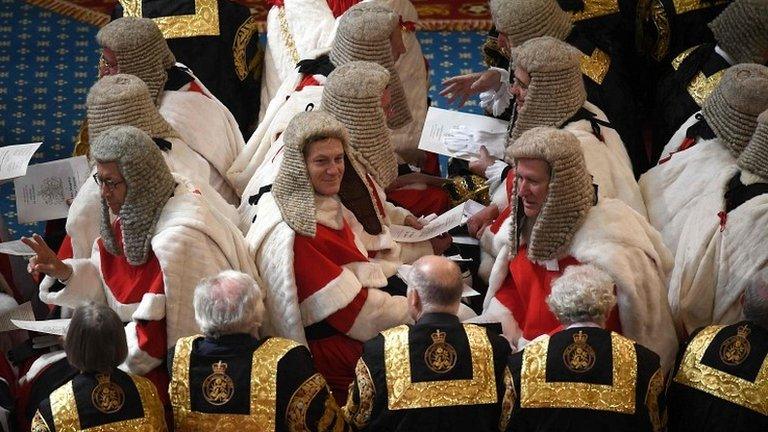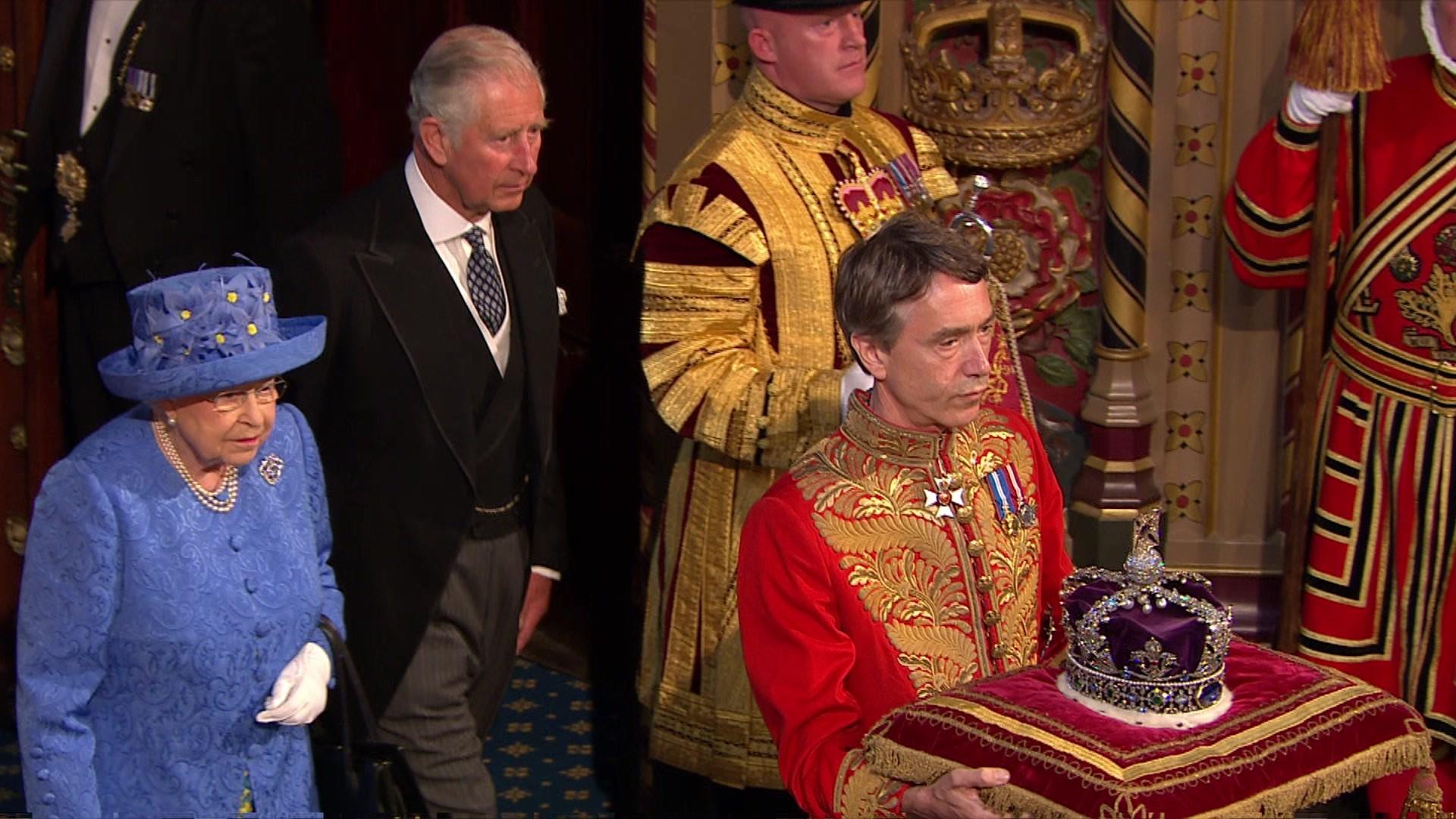Queen's Speech: Post-Brexit powers pledge by ministers
- Published

The Queen was accompanied by Prince Charles
A promise not to use Brexit to take powers from the Welsh Government has been included in the Queen's Speech.
The speech, outlining UK ministers' plans, also vowed to strengthen ties between the four UK nations.
In January, First Minister Carwyn Jones said Theresa May had pledged not to use Brexit "as cover for a 'land grab' on devolved powers".
But he claimed on Wednesday that the planned legislation on Brexit threatened to curtail Welsh powers.
The Queen was accompanied by the Prince of Wales, rather than the Duke of Edinburgh.
Buckingham Palace said Prince Philip had been admitted to hospital on Tuesday night as a "precautionary measure" for treatment of an infection arising from a pre-existing condition.
Outlining the minority Conservative government's plans following the snap general election, the Queen told Parliament: "A priority will be to build a more united country, strengthening the social, economic and cultural bonds between England, Northern Ireland, Scotland and Wales.
"My government will work in cooperation with the devolved administrations and it will work with all of the parties in Northern Ireland to support the return of devolved government."
'Spaceports'
Notes accompanying the Queen's Speech say the Repeal Bill, transferring existing EU legislation into UK law, refer to "maintaining the scope of devolved decision-making powers immediately after EU-exit".
The notes add: "This will be a transitional arrangement to provide certainty after exit and allow intensive discussion and consultation with devolved administrations on where lasting common frameworks are needed."
In her foreword to the background briefing on the speech, Mrs May also says her government's programme for the next two years will "support the burgeoning aerospace industry in Wales".
The Space Industry Bill will feature "new powers to license a wide range of new commercial spaceflight, including vertically-launched rockets, spaceplanes, satellite operation, spaceports and other technologies."
Welsh Secretary Alun Cairns said the Queen's Speech was "about making the most of the opportunities that lie ahead for Wales as we leave the European Union and making sure that the Brexit deal works for people across the whole country".
"I will continue to work closely with businesses, communities, local authorities and the Welsh Government to ensure we have a smooth and orderly withdrawal that benefits people in all parts of Wales," he said.
Carwyn Jones says Brexit laws threaten to curtail devolved powers
Responding for the Welsh Government, Mr Jones said it was an "unambitious" programme which nevertheless threatened to curtail Welsh powers in the way it handled the return of responsibilities from the European Union after Brexit.
Earlier, he urged the prime minister to "put the UK economy above political self-interest" and reconsider plans for a "hard Brexit for which she has no mandate", after losing her House of Commons majority in the general election earlier this month.
Last Thursday, Mr Jones unveiled a blueprint to overhaul relations between the governments of the four nations after the UK leaves the European Union.
"Last week we set out exactly how this can be achieved in our policy paper on Brexit and devolution," he said.
"However, if the prime minister disregards our efforts to work together and, instead, chooses to disrespect devolution and constrain the devolved nations, she will bring about a constitutional crisis that will damage the union."
Shadow Welsh Secretary Christina Rees said the Queen's Speech contained "no vision and no agenda for Wales" from a "Tory PM with no mandate here in Wales".
Plaid Cymru's Westminster leader Liz Saville Roberts said: "Despite a vague reference to working with devolved parliaments to build consensus, there was not a single commitment to deliver for Wales."
- Published20 June 2017

- Published21 June 2017

- Published21 June 2017